The purpose of writing this article, “Why Civic Sense is Important for Pakistanis,” is to help us grow as a nation in the right way. If we adopt discipline, respect, and responsibility, we can earn our place among civilized and developed nations.
These are a few things I realized only after moving to a new country—things that are essential for progress but often ignored back home.
In this article, I will share real personal examples to show how civic sense plays a huge role in a nation’s progress.
As a newcomer overseas spending a few days in Canada, I, as well as you, quickly noticed the strong civic sense of its people. Whether it’s road etiquette, proper sidewalks alongside roads, the cleanliness of the streets, fresh air, or the neatly lined trees and flowers, everything feels well-organized. There’s green grass everywhere, proper signs on roads, and even at grocery stores, people naturally form lines at the counters. What really stands out is how everyone interacts with you—they do exactly what you expect, and there’s a sense of mutual respect.
It’s hard not to think about how much this is lacking in our own country. That’s why I’ve decided to write about this on my blog, with real examples, to help people truly understand what civic sense means. Hopefully, we can adopt these habits back home and create a society that’s more livable for everyone. Let’s get started!
- A First Impression: Clean Cities and Rule-Following
In 2010, my parents visited Canada and America for the first time—it was their first experience traveling outside of Pakistan. After they returned three months later, I asked them what they liked the most about both countries. Their answers were simple but identical: the cities were incredibly clean, and the roads were wide with lots of traffic, yet there was no honking or smoke. They also noticed people are very well behaved, and treat you very well in public space
My mother said something that really stuck with me: “Will we ever be like this?” It was a question filled with hope, but also a bit of sadness.
This observation highlights a glaring issue that many of us have noticed but rarely address—our lack of civic sense in Pakistan

2. What Is Civic Sense?
Civic sense is all about public behavior that’s socially responsible and considerate of others. It’s about following traffic rules, keeping public spaces clean, and being mindful of how our actions affect those around us. Sadly, examples of the lack of civic sense in Pakistan are everywhere.
Think about how we drive—no lane discipline, honking needlessly, using high beams at night, and rarely stopping at pedestrian crossings or red lights. Ambulances often struggle to find their way because no one gives way. Sometimes, we even end up racing with the ambulance, trying to see who can get through the traffic faster. Our traffic chaos is reflected in a casualty rate that is one of the highest in the word.
Outside traffic, our sidewalks are often blocked by illegal parking or street vendors. Construction waste and garbage are dumped indiscriminately, and public walls are defaced. It’s no wonder many public spaces feel unlivable.
In Canada, you don’t just see these things. And no one is allowed to pass a school bus if it’s stopped. Cars on both sides of the road line up, patiently waiting until the students safely get off and reach a secure spot. No one honks or tries to sneak past—they just wait. It’s a whole different level of respect and discipline.
3. The Impact of Poor Civic Sense
The lack of civic sense doesn’t just make our cities unpleasant; it has real consequences.
- Traffic Chaos and Accidents: No rules Wild traffic leads to higher accident rates, often with fatal consequences.
- Environmental Pollution: Littering, burning trash, and contaminating water bodies harm public health and the environment.
- Public Space Neglect: Sidewalks, parks, and streets become unusable due to poor behavior and mismanagement.
- Noise Pollution: Loudspeakers blast at full volume at weddings, events, and religious places. Car drivers honk non-stop, even when it won’t change anything, and Late-night fireworks and parties disturb entire neighborhoods.
4. Why Civic Sense Is Important
Civic sense is essential to making our cities livable. Imagine going for a simple walk without dealing with smog. (These days (Nov to Dec), Lahore has become a hub for smog. Because of this, it’s hard to even breathe properly.), litter, or foul smells. Improving civic sense can also reduce the incidence of infectious diseases, accidental injuries, and fatalities.
Most importantly, a better civic sense fosters trust and cooperation among citizens, laying the foundation for a more productive and harmonious society.
5. Who’s to Blame for the Lack of Civic Sense?
When discussing the lack of civic sense in Pakistan, we often point fingers.
- Blaming Others: Poor migrants from rural areas are often scapegoated for urban issues.
- Blaming the Government: While the government does play a role, it can’t solve everything on its own.
Curiously, we rarely blame ourselves. But let’s face it—who congests roads, pollutes air, parks illegally, and breaks traffic laws? It’s us. The government, made up of people like us, reflects the same lack of civic sense.
In Canada, the civic sense is part of daily life; people follow the rules, streets are clean because people use trash bins and recycle, and generally clean up after themselves and volunteer clean up; the sense of shared responsibility, whether it govt or people keeps communities running smoothly.
6. The Cultural and Social Roots of the Problem
So why do we Pakistanis lack civic sense? It’s not because we’re inherently different from others but because of cultural and societal factors.
- Flawed Upbringing: Many of us grow up expecting others—moms, maids, or municipal workers—to clean up after us. We’re rarely taught to take responsibility for our surroundings.
- Education Gaps: Our schools don’t emphasize civic responsibility, environmental awareness, or even basic rights and duties as citizens.
- Inequality and Hierarchy: Deep social divides make it hard for people to feel a shared responsibility for public spaces.
- Low Expectations: Many Pakistanis have grown accustomed to dirty, disorganized public spaces, which reinforces apathy.
7. What Makes Countries With High Civic Sense Different?
Countries with high civic sense didn’t achieve it overnight. It’s the result of deliberate actions in four key areas “4E”: Educate, Engineer, Enforce, and Engage.
8. Educate: Teaching Civic Responsibility
Civic sense isn’t innate—it must be taught. Parents, schools, and communities all have a role to play.
- Starting at Home: Parents need to set examples by being mindful of their own public behavior.
- In Schools: Schools can introduce interactive courses that teach kids about waste segregation, recycling, and conservation.
- Public Campaigns: Large-scale ad campaigns, like those in the U.S. in the 1970s, can inspire change. Why not make civic sense part of corporate social responsibility (CSR) initiatives?
9. Engineer: Designing Cities for Better Behavior
Good urban design encourages good behavior. For example:
- Dustbins with recycling options.
- Clean, well-maintained public toilets.
- Usable sidewalks and clear signage.
- Affordable and efficient public transportation.
The Lahore Metro is a great example. People who litter outside suddenly behave inside the metro stations. Why? Clean spaces and subtle reminders make it easier to do the right thing.
10. Enforce: Strengthening Law Enforcement
Rules mean little without enforcement. Unfortunately, penalties for violations like littering, spitting, and traffic offenses are rare.
I will give you an example: If you litter, you face a heavy fine, or you park illegally. For example, in Canada and America, there are reserved parking spots near the main entrances of buildings for special needs and elderly people. If you violate the rule and park your car there, you can be fined $250. The police make sure no one breaks these rules, ensuring respect for everyone.

.What Pakistan Can Learn
Pakistan doesn’t need to do anything new. We can simply learn from what Canada and America are already doing.
- Start with Awareness
Media campaigns, school programs, and even social media can teach people why civic sense matters. - Build Better Systems
Provide more trash bins, improve public services, and enforce rules like traffic laws and anti-littering fines. - Lead by Example
Public figures and community leaders can set the tone. When people see others following the rules, they’re more likely to do the same. For example cricket star turn politician Imran Khan started the Billion Trees Tsunami project to fight climate change , it raised awareness among everyday Pakistanis about planting trees, and the whole world appreciated it.

Closing Thoughts
Civic sense isn’t just about rules—it’s about respecting the space and people around you. North America thrives on it because people and systems work together. Pakistan, with its rich culture and a strong sense of community, has what it takes to get there. It’s all about small changes adding up. If we want Pakistan to progress, we must develop civic sense. No amount of infrastructure, government policies, or economic reforms will help if people don’t follow basic discipline in daily life.


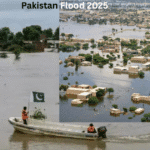
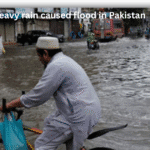



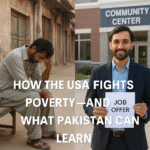
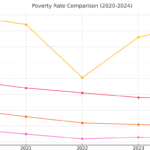

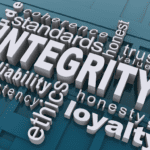
it is a good one!
Thank you so much for your kind words!
Appreciate you taking the time to read and share your thoughts!
As an Indian, this article is relatable. Most of the comments here are applicable for India too. although both countries have bitter rivalry, both countries are more or less similar to each other when it comes to civic sense and hygiene
Thank you so much for taking the time to read and comment!
It’s always inspiring to hear from our neighbors in India. Honestly, many of the challenges around civic sense—like littering, traffic indiscipline, and lack of public responsibility—are not limited to Pakistan alone. But what gives me hope is that both our countries are full of young people who want change.